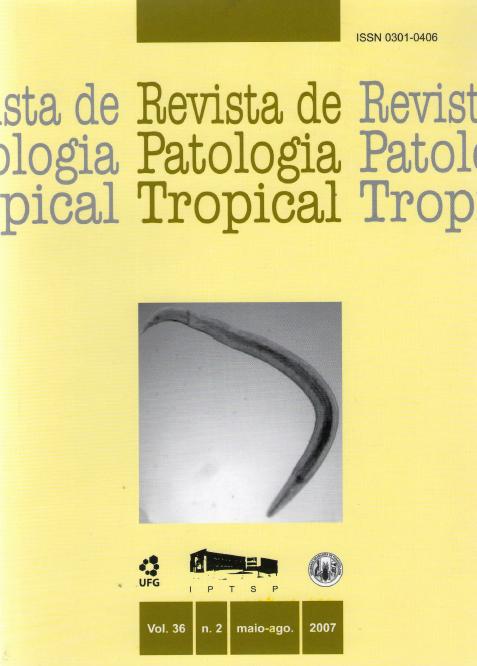Anti-M2 muscarinic receptor autoantibodies in Trypanosoma cruzi-infected pediatric patients treated with benznidazole
DOI:
https://doi.org/10.5216/rpt.v36i2.1804Resumo
The presence of autoantibodies with adrenergic and cholinergic activity, capable of triggeringneurotransmitter receptor-mediated effects, has been associated to pathogenesis in T. cruzi-infected
hosts. We determined the presence of anti-M2 muscarinic receptor IgG autoantibodies in 14
pediatric patients with Chagas disease and 18 non-infected infants. T. cruzi-infected children showed
a higher frequency and a 6.2 ± 1.8-fold increase in the level of autoantibodies to cardiac receptors
when compared to controls. Patients were monitored since the initiation of specific treatment
with benznidazole (Bz). Along the follow-up, we verified a significant linear decreasing trend
in autoantibody reactivity. Remarkably, when treated children became seronegative for T. cruzi
as direct consequence of parasiticidal chemotherapy, they displayed autoantibody titers similar
to those detected in healthy subjects. We conclude that, in pediatric patients, the M2 muscarinic
receptor autoantibody response is elicited early in the course of T. cruzi infection and decreases after
specific treatment, implying that specific Bz treatment eliminates the parasite and reduces potentially
pathogenic autoimmune responses.
Downloads
Downloads
Publicado
Como Citar
Edição
Seção
Licença
The manuscript submission must be accompanied by a letter signed by all authors stating their full name and email address, confirming that the manuscript or part of it has not been published or is under consideration for publication elsewhere, and agreeing to transfer copyright in all media and formats for Journal of Tropical Pathology.

